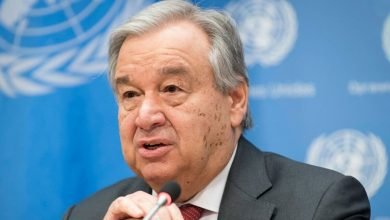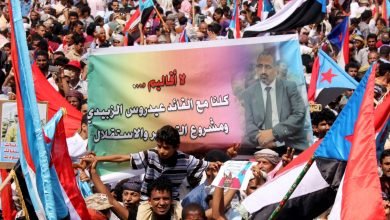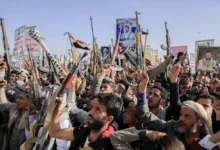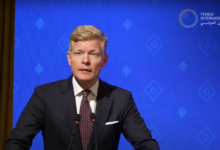US Intelligence Report Predicts Deterioration of Humanitarian Situation in Yemen
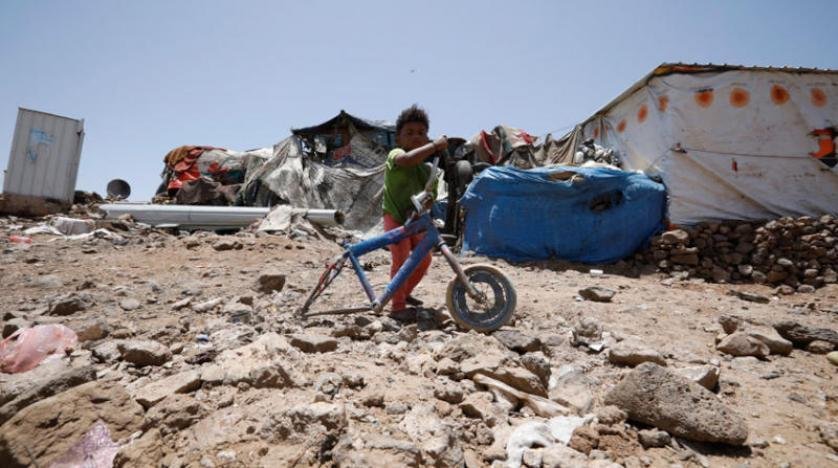
SMA NEWS – WASHINGTON
As the conflict and suffering continue in Yemen, a US intelligence report predicted that the humanitarian situation in the war-torn country will deteriorate.
Such reports from the US military intelligence are not surprising to the Yemeni people, who have been suffering from instability that erupted with the so-called Arab Spring revolts and the ouster of Ali Abdullah Saleh in 2011.
In a report to Congress that was seen by Asharq Al-Awsat, military intelligence said that Yemen was suffering the world’s worst health and humanitarian crisis that is expected to continue due to the war.
The report held the Iran-backed Houthi militias responsible for the crisis because they control most inhabited regions in Yemen.
Moreover, it accused Iran of continuing to support the militias with weapons and military advisors in order to pressure the Saudi-led Arab coalition and help in carrying out complex and long-range attacks against the Kingdom. Indeed in 2019 and 2020, these attacks reached Saudi cities, regions and oil facilities.
The report noted that in 2020, the Houthis escalated their rocket and drone attacks against Saudi Arabia. They also made major gains in areas under their control and that were held by the Yemeni government. They also consolidated their control over northwestern Yemen and are now threatening Marib city, the last government military and economic stronghold in the north.
The report added that the Houthis were growing increasingly confident due to the ongoing support they are receiving from Iran. They are now seeking negotiations with the Saudi-led coalition that would clearly reflect the situation on the ground and their military successes.
On the humanitarian and health efforts, the report said that even though the Yemeni government exerted some efforts to monitor the outbreak of the coronavirus and offered medical aid to some provinces, the Yemeni leadership lacks cohesion and financial resources to implement effective measures to combat the pandemic.
The report accused the Houthis of underestimating the impact of the virus and of underreporting actual infections in areas under their control. This means that Yemen may continue to face health and economic crises that would exacerbate the already severe humanitarian crisis.
Meanwhile, several Congressmen criticized Iran’s behavior in supporting the Houthis and its armament of the militias to escalate the Yemeni crisis. They called for a ceasefire and an end to the humanitarian crisis.
“Iran continues to send deadly weapons to the Houthis in Yemen, which is a blatant violation of the UN Arms Embargo,” tweeted Congresswoman Claudia Tenney, stressing that the cleric-led regime “must stop its illegal and dangerous activities.”
Tenney also blamed Iran for actively exacerbating the humanitarian catastrophe in Yemen.
“That the US Navy seized another shipment of Iranian weapons bound for Yemen should come as no surprise. Iran has sought to fuel civil war in Yemen since at least 2013,” said US Senator for Arkansas Tom Cotton in a tweet on Sunday.
Meanwhile, calls have been increasing on the Houthis to cease their yearlong offensive against oil-rich Marib. The calls have fallen on deaf ears, which is threatening to exacerbate the humanitarian catastrophe in the province that is home to a million Yemenis, most of whom have been displaced there from the six-year civil war.
Meanwhile, US Special Envoy for Yemen Tim Lenderking discussed de-escalation in Yemen’s northeastern governorate of Marib, ending the Yemeni humanitarian crisis and achieving a settlement among all warring parties.
He did so with several European ambassadors and representatives of international organizations.
In a tweet, the US State Department confirmed that Lenderking and Christopher Farnaud, France’s director for the Middle East at the Foreign Affairs Ministry, spoke on Tuesday.
The two agreed that “Houthis are holding the future of Yemen hostage, continuing a long, costly offensive on Marib.”
Moreover, the State Department said Lenderking and Farnaud considered the Saudi-proposed ceasefire to be a “fair deal” and called on Houthis to engage.
The State Department also rebuked the Iran-backed group for refusing to meet the UN’s Yemen envoy, Martin Griffiths, in Oman last week.


